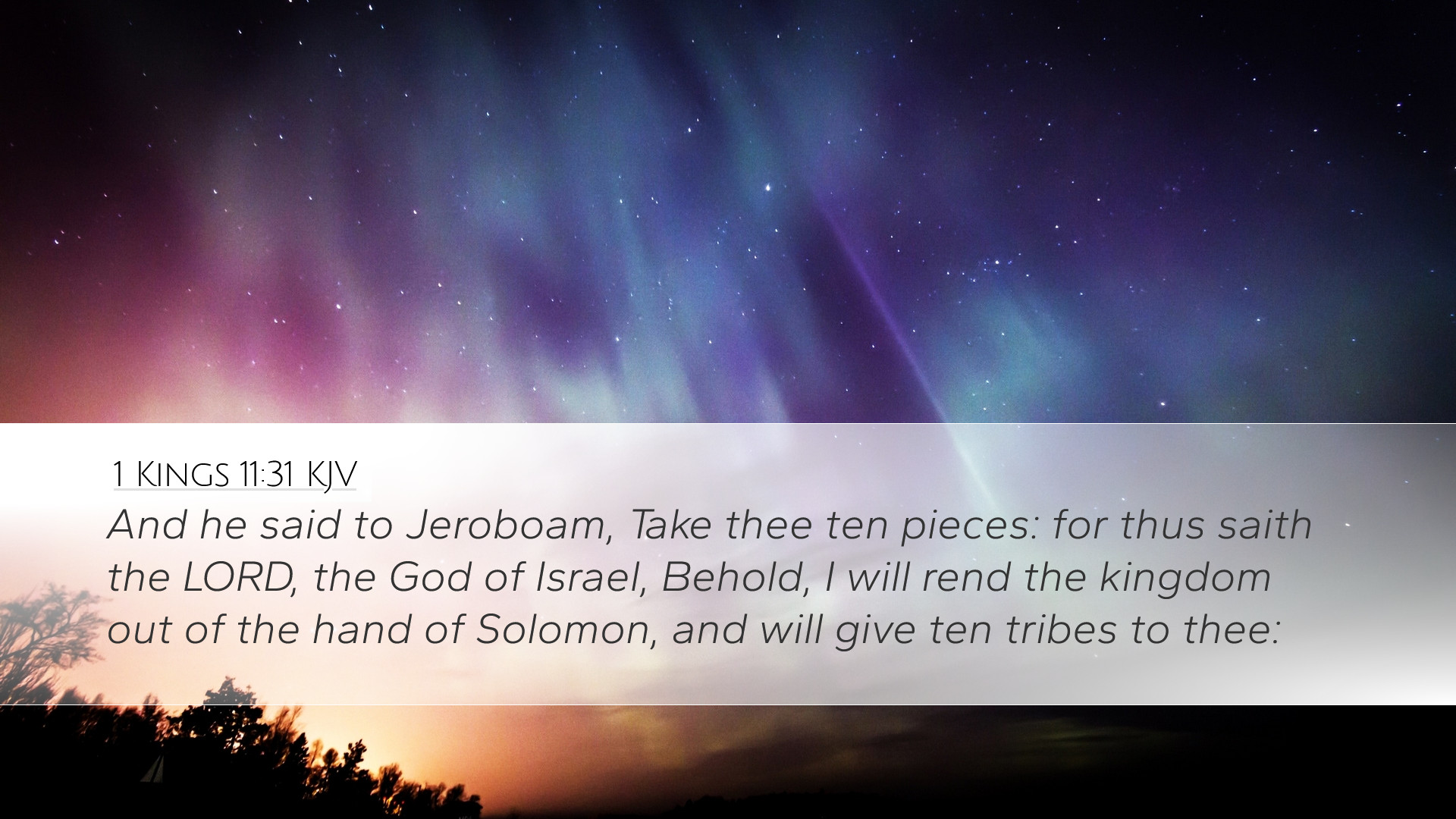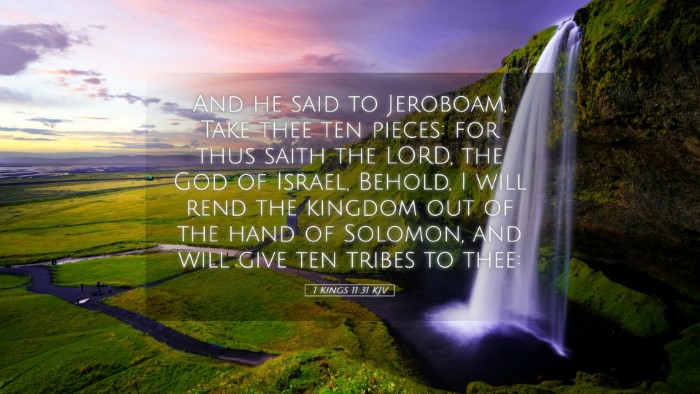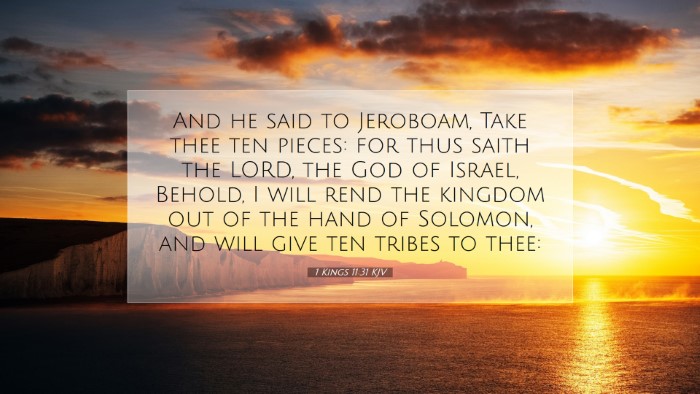Commentary on 1 Kings 11:31
1 Kings 11:31 states:
“And he said to Jeroboam, Take thee ten pieces: for thus saith the LORD, the God of Israel, Behold, I will rend the kingdom out of the hand of Solomon, and will give ten tribes to thee.”
This verse comes at a pivotal moment in the history of Israel, portraying the divine decision to divide the kingdom. In this commentary, we will synthesize insights from public domain commentaries, offering reflections for pastors, students, theologians, and scholars.
Contextual Background
The division of the kingdom is a critical juncture in the biblical narrative. Under Solomon, Israel reached its zenith of wealth and power, but this period also set the stage for conflict due to idolatry and the burden of taxation on the people. The prophetic message to Jeroboam marks a turning point that fulfills God’s plans concerning Israel’s governance.
The Divine Decree
Matthew Henry observes that this act of God is a response to Solomon’s unfaithfulness. The kingdom's division is framed as a judgment, one that reflects the severity of Israel’s spiritual decline under idolatry:
- God's Sovereignty: The choice of Jeroboam indicates God’s sovereignty over leadership and the unfolding of His redemptive plan.
- Judgment and Mercy: While judgment comes due to Solomon’s sins, mercy is intricately woven through the promise to Jeroboam, as he is given authority over ten tribes.
Jeroboam: The Chosen Instrument
In this context, Jeroboam’s selection is noteworthy. Albert Barnes elaborates on Jeroboam’s background as a servant who rose to prominence due to his capability:
- Leadership Potential: Jeroboam's ascent illustrates God’s ability to use unexpected individuals to fulfill divine purpose.
- Conditional Authority: The authority conferred upon him is contingent on faithfulness to God, which becomes a central theme in the following narratives.
The Ten Tribes and Theological Implications
The division affects not merely a political landscape but has lasting theological implications. Adam Clarke emphasizes that the ten tribes represent a significant portion of God’s chosen people:
- Promise of the Messiah: The division foreshadows future conflicts and the ultimate need for unity fulfilled in Christ, as the lineage from which He comes primarily stems from Judah.
- Covenantal Faithfulness: The narrative recalls God’s covenant with Israel and highlights the importance of obedience to divine commandments.
Lessons for the Faith Community
The events surrounding 1 Kings 11:31 serve as vital lessons applicable to contemporary faith communities:
- Faithfulness to God: The choice of Jeroboam emphasizes God's call for leaders to maintain fidelity to divine mandates, a reminder for current leaders to model their behavior after God's principles.
- Consequences of Disobedience: Solomon’s idolatry reveals the dangers of turning away from God, illustrating the immediate and generational repercussions of sin.
- Hope in Division: The division offers a glimpse of hope; even in judgment, God promises continued leadership and care for His people, assuring them of salvation and redemption.
Conclusion
1 Kings 11:31 captures a critical moment of transition within the biblical narrative. By examining Jeroboam’s rise, we gain insight into God’s sovereignty, the importance of faithfulness, and the implications of leadership within the faith community. As we wrestle with contemporary leadership challenges, this passage calls us to reflect on our commitment to God’s covenant, striving for faithfulness in all aspects.


